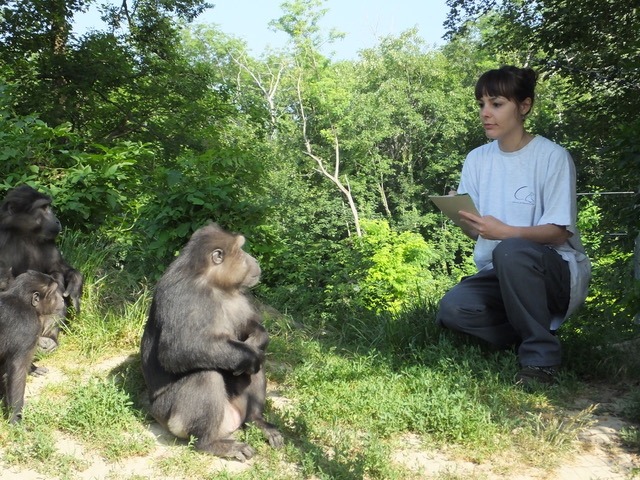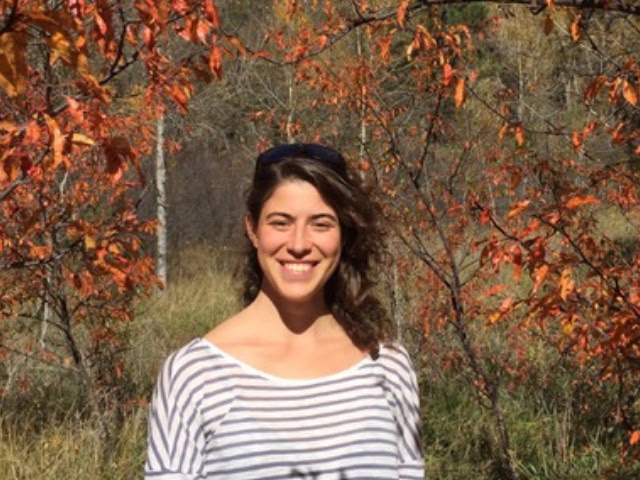Surviving the Viva: PhD defences remembered
The PhD viva (or defence) is likely one of the most stressful moments of many academics’ professional lives. What’s worse is that this rite of passage doesn’t even follow the same format across institutions or countries, making preparing for your viva even more difficult. Will it be a public or private defence? Will you make corrections before or after defending? Will you be faced with internal or external examiners, and how many?
To shed at least a little light on the experience, Cultured Scene asked early-career researchers who studied in a variety of countries to explain how their defence worked, and to offer advice to students preparing for their own defence.

Charlotte Canteloup: PhD defence in France (University of Strasbourg)
I had a jury of examiners which was composed of 6 female members (including my PhD supervisor) which was quite rare (the year after, the University required gender parity in PhD juries) although it was not done on purpose! The requirement was that half of the jury had to be professors (or ‘Habilités à diriger des recherches’ in French) and from outside my University. The choice was made in agreement and after discussion with my PhD supervisor. Because the general introduction and conclusion of my manuscript were written in French, we had to find jury members who read and spoke French, which considerably reduced the list of potential people! The jury was composed of two external ‘rapporteurs’ (referees), one internal examiner from the University of Strasbourg, two extra examiners (that were not mandatory, but I wanted to have a greater variety of researchers included) and my PhD supervisor.
My manuscript was a thesis by publication composed of five chapters, each corresponding to a paper: three were already published and the two others were under review. I sent my manuscript to all jury members two months before my PhD defence but only the two rapporteurs had to write a report evaluating the quality of my manuscript and specifying if they would allow me to defend my PhD. Two weeks before my defence, I received their report and, as they both evaluated my work as ‘very good’, I could defend my PhD!
My PhD defence was a public defence in front of the jury, but my colleagues, family, friends and any other people interested in the topic were present. My oral presentation lasted 45 minutes and was followed by about 2 hours of questions asked by jury members. As an anecdote, I realized less than 30 minutes before starting that my Powerpoint was not working properly on the computer in the room, so I had to quickly find another one which made me stress a lot just before starting! I think that this rush of adrenaline made me feel much more relaxed afterwards, though! I have very fond memories of my PhD defence because it was the final outcome of my PhD, I was happy and honored to present the work I had done for several years and I really felt considered as a proper researcher by my peers.
After the question session, the jury met in private, wrote a final report and granted me a doctorate in Eco-Ethology. I did not have any revisions to do so my thesis was complete the day of my defence.


Lucie Rigaill: PhD defence in Japan (Primate Research Institute of Kyoto University)
I did my PhD in Japan, at the Primate Research Institute of Kyoto University (KUPRI). At KUPRI, to graduate before the end of the fiscal year (March) every numerous step of the process has to be precisely timed to coincide with faculty meetings at KUPRI and at Kyoto University. So basically, the process starts around September-October for a graduation in the following March.
PhD candidates are required 1) to have at least one paper as first author accepted, 2) to have presented a least once in an international meeting, and 3) to have done a “PhD plan presentation” to submit the thesis for examination. The PhD plan presentation is an open practice talk of 45 minutes where the content of the PhD is judged sufficient (or not) to move on to submission. The thesis is a compilation of published and submitted (or ready to be) papers as chapters, with a general introduction and a general discussion. All along the process various corrected versions of the thesis will be printed, each time in 5 copies!
PhD candidates and their supervisor decide together on the 5 PhD committee members: one is the supervisor, and one or two can be external to KUPRI, with only one outside of Japan. In my case, I had my Japanese supervisor, my French co-supervisor, two professors affiliated to my section, and a professor from an affiliated institution. All were knowledgeable in my field and professionally and/or personally knew me (so there was no truly “external” referee).
The PhD defence is a private meeting without a presentation: it’s a discussion between the PhD candidate and the PhD committee members. All have access to the thesis a few weeks before the meeting. They can either give feedback during the meeting or before it – which allows correction before the defense and facilitates acceptation. Mine took 4 hours, one of the longest so far… It was not unpleasant, just tiring and a bit frustrating after what felt already like a long process. After the PhD defence, doctoral candidates finalize the last version of the thesis and officially submit it.
Then, all doctoral candidates give their final and open 45 minute PhD presentation on the same day in late January. Interestingly, there is no real big celebration after that. A social gathering is organized for all master and PhD candidates who defended, but this is quite formal and a bit impersonal since it’s as shared “celebration”.
The acceptance of the PhD is first voted on at the end of January at KUPRI, then the decision is passed to Kyoto University where it is confirmed in February. Finally, PhD candidates graduate at the end of March. Not much in between apart from more thesis printing! Due to this long process, I did not feel happy or relieved or accomplished after my defence or after my final presentation or when I got my diploma. I did not feel much, I think my feelings got washed away across the journey. But no regrets! I have an extended gratefulness for this amazing professional and personal experience.


Rohan Kapitany: PhD defence in Australia (University of Queensland)
I completed my PhD in Australia in the School of Psychology at the University of Queensland. As a quirk of history, or perhaps because Australia is so far away from the rest of the world, my programme never used the classic viva model of defence. The preferred model was ‘by publication’, whereby each empirical chapter of the PhD ought to be a published, under-review, or an in-prep manuscript. These empirical chapters are bookended with an introduction and conclusion (that are unique to the dissertation) and subsequently reviewed by two or three examiners per ‘peer review’. When I submitted my dissertation, my first two empirical chapters had been published, while my third and fourth were not.
There are both advantages and disadvantages to this. If you are fortunate to have published empirical work, you can basically cut-and-paste your papers into your dissertation (though some universities have policies against this). Superficially, this seems like a time saver, though the lurking burden is that you’re pre-committed to everything you say in those chapters being part of your dissertation. My first manuscript was 20,000 words long, and contains (relatively minor) statements that I no longer stand behind. A more flexible model would simply allow me to omit those statements and shorten the chapter in the light of greater intellectual development.
Examiners were chosen in much the way they are chosen for a verbal defence: you nominate a small number of scholars who would be sufficiently expert to review the document. My university excluded as reviewers anyone that either I, or my supervisor, had ever met. That said, the world is not so small, and I was more than happy with those who reviewed me (one who revealed their identity, and one who did not*).
There are two drawbacks of this model relative to an oral defence. The first is that you miss out on the opportunity to spend an afternoon with a couple of experts who are treating you as an expert. For many PhDs this is their first time they put on their academic big-kid pants. This opportunity is lost. The second issue is that it’s a prolonged, cold bureaucratic process, with drawn-out waiting periods of three to six months. Once returned, these written reviews include details on whether you are worthy of passing, and whether or not you are required to make major/minor changes. This timeline can make it challenging to apply for jobs and fellowships. A related and quite subjective issue is that after submitting your dissertation, which is almost certainly one of the biggest projects (and possibly accomplishments) of one’s life at the time of submission, there is no pageantry or formal recognition. You hit the ‘submit’ button and go to the pub. In my opinion – and as a scholar of ritual! – there is much to be appreciated in the oral defence as a rite of passage and initiation (even if it’s also one of the most professionally anxiety-provoking experiences possible).
Though asked to provide some advice to those in my position, I can only say this. Everyone’s experience of the final months of the dissertation is extremely variable. I became a terminal insomniac, for example. Stay calm, work to your own strengths, don’t compare yourself to others in the same situation, and keep your eyes on the prize.
*Incidentally, that reviewer provided a .docx with the review and critique, which included their meta-data. Though perhaps I shouldn’t have, I was able to identify them quite easily.


Alba Motes Rodrigo: PhD defence in Germany (University of Tübingen)
I defended my PhD thesis at the University of Tübingen (Germany) in July 2020 during a global pandemic, so my defence took place in somewhat special circumstances. Before the defence, I had to send my thesis to my examiners. At the University of Tübingen, you have four examiners. In the department where I did my PhD, your supervisor will also be one of your examiners (which is a bit strange). In addition, the head of the Department (who was my second PhD supervisor) was also an examiner. Finally, I had to have two more examiners who had not been involved in my PhD. To choose the external examiners, I turned to two professors whose expertise I really valued and who I thought could provide valuable feedback on my work. One of them was an expert on the fields I had done my PhD on (i. e. cognitive and primate archaeology) but the other wasn’t. I made this last decision because I thought it was important to have someone with a different perspective in my panel who would ask questions that perhaps I hadn’t been asked or thought about before.
Each of my examiners received a copy of my thesis but I only received feedback from my two supervisors before the defence. Once they read my thesis, my two supervisor-examiners had to write a detailed report evaluating my work and the discussion I had made of my findings as well as to give me a grade for my written thesis. These reports were sent to the dean’s office of the University where I could read them and check my grade. The written thesis grade is quite important because it constitutes a big percentage of your overall PhD grade. This grade goes between 5 and 0 (with 0 being the top mark). After checking the reports, the next step was to prepare the defence itself.
PhD defences at my University are public, meaning that anyone who wants can attend. The defence is divided into two parts: during the first 30 minutes you give a presentation of the work you have done during your PhD and then the examiners ask you questions (my questions lasted 90 minutes). I think it is quite important to remember that you cannot possibly present everything you have done during your PhD in 30 minutes. You need to choose. In my opinion the best defences (and talks in general) are those that tell a story so I tried to give my presentation a logical flow, giving the audience only the background information, data and interpretation that they needed to follow my story. You obviously know much more about the topic than what you are presenting, but you will have time to show all that later during the question round. The questions can be anything related or unrelated to your thesis, so you have to be prepared to improvise a little (although there is not a lot of concrete feedback on your thesis).
Luckily (maybe?), my defence happened during the time between the two Corona waves in Germany. I had a mixed online / in person defence. There were a few people in the room where I was presenting (including three of my four examiners) but I also set up a zoom transmission of the defence so my fourth examiner, my friends and my family abroad could also attend. Honestly that was the best part of it. I got to share a really special day of my life with people that could not have been there in person in normal circumstances but that now I could see nodding and smiling next to me while I was presenting.
After the questions were over, the examiners went to a separate room to decide my overall grade (written thesis plus defence combined) and then called me in to tell me. And that was pretty much it. I wasn’t asked to change anything in my thesis (which is the usual scenario here) but as I wanted to know how could I have improved it, I scheduled a one-to-one meeting with one of my external examiners to receive her detailed feedback.
Overall I had a great defence day and I really enjoyed chatting about my project with my examiners. I learned a lot from the discussion we had and I have used a lot of the feedback for my PhD manuscripts. If I can give one advice to PhD candidates reading this, I think it would be to take this day as a celebration of your work over the last years. This is the last step, so make the most out of it and have fun.


Rachel Harrison: PhD defence in the UK (University of St Andrews)
I did my PhD at the University of St Andrews in Scotland, which meant finishing with a viva voce examination. A few months before I finished writing my thesis, my supervisor and I began to discuss who my examiners should be. I needed one internal examiner (someone from the university, normally someone that you know fairly well) and one external examiner, who needed to be an expert in the field that I hadn’t worked with before (and who didn’t have too close a relationship with my supervisor, although they were allowed to have published together in the past). Once I finished writing my thesis (4 experimental chapters, one of which was submitted and under review when I submitted by thesis, along with a general introduction chapter and a conclusion), the examiners each received a copy a few weeks before the date we’d agreed upon for my viva.
There’s no feedback before the viva, so you arrive on the day with no idea what your examiners think of your work. The viva is a private discussion between you and your two examiners – your supervisor has to wait nervously in their office. At the start of the viva, I was asked to briefly talk through my thesis, but there was no formal presentation. Then, my examiners and I spent around 3 hours discussing my thesis – the ideas it covered, my ideas for future work, but most importantly, what was unclear about it and what needed correcting before they would consider it acceptable as a finished thesis. At the end of this discussion, my examiners asked me to leave the room for a few minutes while they decided what the result would be. At St Andrews, there are multiple possible outcomes: ‘no corrections’ (your thesis is accepted on the spot, as it is – this is the stuff of legend), typos (your thesis only needs typos correcting, and is otherwise accepted as it is), minor corrections (you have 3 months to make the changes suggested by the examiners, and they then sign off on your revised version), revise and resubmit (you have 12 months to make corrections, the examiners can then accept your revised version or ask you to sit another viva), or your thesis is not judged to be of sufficient merit, in which case you might be offered the opportunity to submit a version of it for a Masters qualification instead.
To my absolute horror, I was asked to revise and resubmit, meaning I had 12 months of corrections ahead of me. At the time, I’ll be honest, this felt awful – most of my PhD cohort had received typographical or minor corrections. But it was the right result for me. I needed to recode experimental videos to respond to my examiners’ comments, and that meant I needed more than 3 months, especially as I was also working full time. After a short (and embarrassing!) cry in front of one of my examiners, I went out for lunch with both them and my supervisor, before spending the rest of the day celebrating with my external examiner and researchers from the department (luckily my viva coincided with another lab’s Christmas party, so they were spending all afternoon in the pub anyway). After a few glasses of champagne, the revise and resubmit result didn’t seem so terrible! A year later, I sent off the revised version, which was immediately accepted by my examiners. The only unfortunate thing was that this final acceptance of my thesis was a bit anticlimactic – I just received an email to confirm it.
Looking back, I feel incredibly lucky in the examiners I had – they are both incredibly kind, as well as being two of the leading experts in my field, and their suggestions improved my thesis (and the papers stemming from it) immeasurably. The only advice I would offer to others is:
1) Don’t panic if you get major corrections – far more people get this result than you realise, and it simply reflects that you need more time to work on your thesis. Science is all about responding to peer review, and dealing with those major corrections is going to be excellent training. You’ve got this.
2) Enjoy the viva! Even though the outcome felt a little rough at the time, I really enjoyed my viva – it was an interesting, engaging discussion about my research with two of my academic heroes, and I wouldn’t trade it for anything.
About the author
Rachel is the ESLR Journal Secretary. She is currently a postdoctoral researcher at the University of Lausanne, studying social learning biases in children from a comparative perspective.
If you would like to contact Rachel about contributing to Cultured Scene, she can be reached at journalsec2@eslrsociety.org
